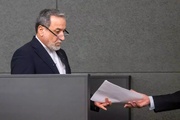In such cases, the legal system steps in to provide a framework for handling the deceased person's estate. An Iranian Estate Planning Lawyer plays a crucial role in guiding the family through the complexities of intestate succession.
1. Appointment of an Administrator:
In the absence of a will, the court appoints an administrator to oversee the distribution of the deceased person's assets. The administrator can be a family member, close relative, or another individual deemed suitable by the court. The appointment is typically made based on a predetermined hierarchy outlined in state laws.
2. Inventory and Valuation of Assets:
The appointed administrator, with the assistance of an Iranian Estate Planning Lawyer, begins by identifying and taking inventory of all the assets left by the deceased. This may include real estate, bank accounts, investments, personal property, and other valuables. Proper valuation of these assets is essential for a fair distribution among the heirs.
3. Notification of Creditors:
The administrator, with the guidance of an Iranian Wills & Trust Attorney, is responsible for notifying creditors of the deceased person's passing. This step is crucial as it allows creditors to file claims against the estate for any outstanding debts. The administrator must review and validate these claims before settling the debts using the assets of the estate.
4. Distribution According to Intestate Succession Laws:
When there is no will, the distribution of assets is determined by intestate succession laws. These laws vary by jurisdiction but generally prioritize spouses, children, parents, and other close relatives. The administrator, under the supervision of a wills lawyer, follows these laws to ensure a fair distribution among the legal heirs.
5. Legal Representation:
The involvement of an Iranian Wills Lawyer becomes especially crucial in the absence of a will. The lawyer provides legal representation for the estate and the administrator, offering expertise on the relevant laws and ensuring that the entire process complies with legal requirements.
6. Resolution of Disputes:
In intestate situations, disputes among potential heirs may arise. An Iranian Wills Attorney plays a pivotal role in mediating and resolving such disputes. Whether it's a question of paternity, sibling rivalry, or other complexities, the lawyer works to find equitable solutions within the framework of intestate succession laws.
7. Final Tax Filings:
The administrator, with the support of a wills lawyer, ensures that all final tax obligations of the deceased are fulfilled. This includes filing the deceased person's final income tax return and addressing any potential estate tax liabilities.
8. Closing the Estate:
Once all debts have been settled, assets distributed, and legal formalities completed, the estate can be closed. Persian Estate Planning Lawyer guides the administrator through the final steps of closing the estate, ensuring that all necessary documents are filed with the court.
In summary, when there is no will, the process of settling the estate becomes more intricate, involving the appointment of an administrator, asset inventory and valuation, debt settlement, distribution according to intestate succession laws, and legal representation. An Iranian Estate Planning Attorney is instrumental in providing the necessary legal guidance, ensuring that the process adheres to the relevant laws, protecting the rights of the heirs, and resolving any disputes that may arise during the settlement of the estate. The expertise of a wills lawyer is invaluable in navigating the complexities of intestate situations, ultimately facilitating a fair and lawful distribution of the deceased person's assets.
Disclaimer: This article is for informational purposes only and does not offer any legal advice.
This article is an advertisement and Mehr News Agency has no opinion on its content.


























Your Comment